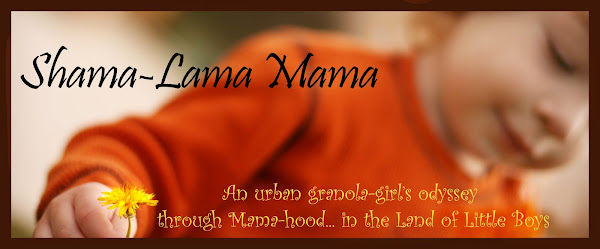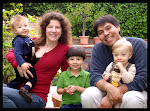The other weekend we were lucky enough to play host to my father's cousin Elana and her husband David for a few days while the stopped in San Diego during his book tour. Elana and David Wesley live in Israel, having moved there (as newlyweds in their early 20s) to live on a kibbutz in the early 1950's, in the very early years of Israel's nationhood. Their kibbutz was on land near a village that was taken from the area's Palestinians, and this kibbutz used this village's orchards as their own, often hiring the Arabs who once owned the orchard as over hire employees during harvest time. They lived on this kibbutz for many years, but as their political views began to lean more to the left, their unease about co-opting the village's land began to grow.
Elana and David Wesley live in Israel, having moved there (as newlyweds in their early 20s) to live on a kibbutz in the early 1950's, in the very early years of Israel's nationhood. Their kibbutz was on land near a village that was taken from the area's Palestinians, and this kibbutz used this village's orchards as their own, often hiring the Arabs who once owned the orchard as over hire employees during harvest time. They lived on this kibbutz for many years, but as their political views began to lean more to the left, their unease about co-opting the village's land began to grow. Elana had always leaned to the left, politically, originally wanting to live on a kibbutz for its socialist look at things, where everyone was equal. She didn't see much equality for the local Arabs, though. Over time, David followed her beliefs, and today they both work toward a peaceful solution to the ancient strife, if not just for equality among the people of both sides.
Elana had always leaned to the left, politically, originally wanting to live on a kibbutz for its socialist look at things, where everyone was equal. She didn't see much equality for the local Arabs, though. Over time, David followed her beliefs, and today they both work toward a peaceful solution to the ancient strife, if not just for equality among the people of both sides.
David's book is about the difficulties encountered by the Palestinians who live within Israel (not the occupied territories) in their struggle for equal rights and full participation as citizens of Israel, which they are in name, but not in practice. David and Elana are touring America, with David lecturing about the book and their beliefs. They already had some social events set up so I played their chauffeur while they were in San Diego and got quite an education by being able to participate in some amazing discussions about the history of the State of Israel, it's current dynamic, and possible solutions from folks who's ancestors came from both sides of the situation.
They already had some social events set up so I played their chauffeur while they were in San Diego and got quite an education by being able to participate in some amazing discussions about the history of the State of Israel, it's current dynamic, and possible solutions from folks who's ancestors came from both sides of the situation.
My first lesson was David's lecture at the SDSU Center for Islamic and Arabic Studies and the lively discussion with professors and students that followed.
The following night, we had dinner with a friend of a friend of theirs: (seafood and good wine overlooking the ocean!) and the husband of the couple turned out to have once worked for the Israel office of Foreign Affairs (if I remember correctly) and had quit after a few years because he was being asked to be a mouthpiece for Israel about things his heart no longer agreed with. He moved to America and now lives in SoCal. And then on the third day, we had been invited to the home of a family here in San Diego, for an afternoon of coffee, cheesecake, and lots of congenial conversation with a group of their friends who were a mix of Israeli, Palestinian, Lebanese folks, etc.
And then on the third day, we had been invited to the home of a family here in San Diego, for an afternoon of coffee, cheesecake, and lots of congenial conversation with a group of their friends who were a mix of Israeli, Palestinian, Lebanese folks, etc.
We met in the home of Miko Peled, an Israeli peace activist and writer, and son of Matti Peled, who was an Israeli Major General in the Six Day War (in which Israel first seized the Gaza Strip and the West Bank) who himself later became a peace activist, and was one of a group of three generals who had clandestine meetings with PLO leaders, working to bring about the first official dialog between the PLO and Israel.
Miko has an interesting theory about how the conflict should be solved... not through a two-state solution, but through a one-state solution: a secular democratic state where every person, Israeli or Palestinian, is an equal citizen with an equal vote, leaving religion out of the whole affair. He writes about it here. Among the other people at our little coffee klatch was a Lebanese artist, her husband who is a professor at the Jewish University of San Diego, and also a woman who is a playwright and founding director of a performing arts company here in the city, who has explored the Israeli-Palestinian conflict in one of her plays, in which she wrote my dad's cousin Elana in as a character with a pivotal role.
Among the other people at our little coffee klatch was a Lebanese artist, her husband who is a professor at the Jewish University of San Diego, and also a woman who is a playwright and founding director of a performing arts company here in the city, who has explored the Israeli-Palestinian conflict in one of her plays, in which she wrote my dad's cousin Elana in as a character with a pivotal role. The talk was lively and friendly, full of lots of laughter and things to consider. I was able to ask questions that most of the folks in the room likely already knew the answers to, without feeling that I was an outsider or should know this stuff already. So it was a really fun and educational experience.
The talk was lively and friendly, full of lots of laughter and things to consider. I was able to ask questions that most of the folks in the room likely already knew the answers to, without feeling that I was an outsider or should know this stuff already. So it was a really fun and educational experience.
After taking my dear guests to the airport to fly off to the next stop on their American odyssey (their daughter's home!), I sought after and watched the documentary, Six Days in June, about the war in 1967, which filled in some gaps in my knowledge.
Being a mom, one often fills their head with more information about carpools and summer camps than about world affairs, and it was such a wonderful experience, stretching my brain for a good long weekend, giving it some exercise and fresh air for once in a long, long time.
More photos from our weekend can be found here.
Tuesday, May 5, 2009
Zen and the Art of Peaceful Coexistance: or My Education on the History and Future of Israel in 3 Easy Lessons.
Posted by
Shama-Lama Mama
at
12:07 AM
![]()
Catagories: Family, Mama, Photo Essay, The Wide World
Subscribe to:
Post Comments (Atom)









6 comments:
Very interesting. I wish I could have joined you guys. It must have been an exhausting but wonderful 3 days. I'm so glad that you got to know them and meet so many interesting people through them. I love the pictures on Flickr.
What a wonderful experience! I heard a long piece some time ago on NPR that showed how Jewish children were taught in school that the Palestinians had walked away and abandoned their homes because they didn't want to live in harmony. No wonder so many adults there resented the idea of a peaceful solution, since they don't understand the complexities involved in the birth of their nation. I also worked, during law school, for an Arab lawyer, and did some freedom of information research into the massacres at shabra and shatilla. It is a complicated problem, and so heartening to hear that thoughtful people are trying to address it.
I also liked the photos of my folks' visit very much, and glad (but not surprised) to hear that they are having a very joyful and meaningful journey. I'm looking forward to hear all their stories when they come back home. However, I must say that some of your background explanations about the Israeli reality and the conflict sound very-very one-sided. Maybe you've been listening to my mom a little too much... I know that she has a way of describing things in black-and-white, mostly black, unfortunately. I know from my own present and past experience, and from what I was taught about how our state and our Kibutz came to be, that things are much more complex than that, and there is certainly not only one side who is the victim and the other who is the opressor. (trust us to make things complicated, always... :-)) I hope that you can balance up your perspective a little, maybe by getting some information from sources other than my dear mom, Elana.
Rachel,
I hear you, I do. I think I do have a more balanced perspective than I eluded to in this post. Here in America, we actually get such a one-sided perspective that your Mom's views and explanations have actually done some bringing of things back into balance. I have always been aware of the existing complexities, even though I had not been very schooled in many of the specifics and understand that both sides have done horrendous things, and both sides deserve some peace and dignity.
What I liked about the conversations this last weekend was that, even though many of the folks thought pretty much along the lines of your parents, that there were both Jews and Arabs sitting down and discussing the issues over coffee and laughter with such a spirit of friendship.
So good to hear from you, too.
What an interesting weekend! I could only imagine the level of conversation! I am jealous!
I have to also add you have not lost your eye for great photographs.
Beautiful treatise. People are people, and there's never an excuse for some of us to treat others of us as if there were other categories (sub),
Thanks for writing.
Post a Comment